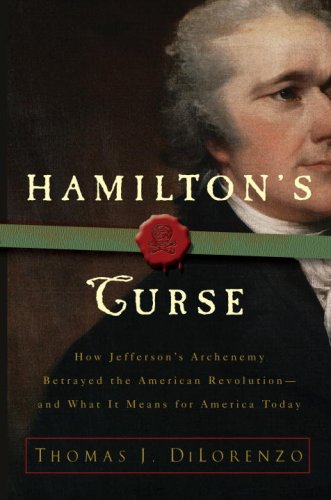At some point in the past, the American ethos was centered on suspicion of government –whether liberal, conservative, or otherwise. For most of America’s first two centuries, Americans were taxed less, regulated less, and left more alone by their government than any other people in the world. These conditions resulted in an explosion of innovation, wealth, and culture unsurpassed at any time in human history.
As that trend seems to have reversed, Americans look to their past to try to establish where we have gone wrong and what we can do to solve our problems. Increasingly, some Americans point to the U.S. Constitution and our abandonment of its “limits on government” as the reason for our downfall. It is generally argued by “strict constitutionalists” that the purpose of the U.S. Constitution was to limit the power of the government. Nothing could be further from the truth.
Don’t get me wrong. If our government were limited to the powers granted it in that document, the United States of America would be far freer, far more prosperous, and likely not facing any of the monumental problems that it is facing now. However, that does not change the facts about why the Constitutional Convention was called or why the Constitution itself was created. If you are astounded that any Republican can still claim that George Bush was “pro-freedom” or that any Democrat can claim that Barack Obama is “anti-war,” you should be equally surprised that anyone can claim that the U.S. Constitution limited the powers of the central government.
 A Return to Common Sense
Best Price: $8.07
(as of 10:47 UTC - Details)
A Return to Common Sense
Best Price: $8.07
(as of 10:47 UTC - Details)
Remember that there was already a federal government of the United States prior to the U.S. Constitution. It was defined in a document called the Articles of Confederation and had been in existence since 1778. Under the Articles, the young nation had defeated the mightiest military empire in human history to win its independence. Acknowledging the true meaning of the words “federation” and “federal,” the document defined the relationship between the states as “a firm league of friendship with each other.” There was no implication that the United States was one nation and the several states merely subdivisions within it. There was no president to usurp power. There was no Supreme Court to legally sanction tyranny. There was no IRS. While the federal government would pay for any war fought by the federation out of a common treasury, the Articles left the actual act of taxation to the States.
 Hamiltonu2019s Curse: ...
Best Price: $1.35
(as of 11:00 UTC - Details)
Hamiltonu2019s Curse: ...
Best Price: $1.35
(as of 11:00 UTC - Details)
“The taxes for paying that proportion shall be laid and levied by the authority and direction of the legislatures of the several States within the time agreed upon by the United States in Congress assembled."
Compared to the overtaxed, overregulated society that is America today, the America of the 19th century was one of astounding liberty and prosperity. However, even America after 1787 had much more government than America in its first decade. We are taught that this was a grave problem and that the Constitution was necessary to avoid imminent destruction from any number of horrors, including invasion by a foreign power, civil war, or economic upheaval as a result of protectionism by the states. We accept these assertions as facts because of the reverence we hold for the founders of our country. However, how different was the atmosphere surrounding the Constitutional Convention from that surrounding the Patriot Act, the TARP bailout, or the current efforts to expand government power in the name of environmentalism? Despite the pure heresy of the idea, there was really no difference at all.
By 1787, there were two dominant parties in America. Unlike the two dominant parties today, the Federalists and what would later become the Democratic-Republicans of that time really were diametrically opposed on fundamental issues. Led by Alexander Hamilton, the Federalists sought a much more powerful central government with a central bank, a standing army, and an alliance with big business that would control the economy. In opposition to them were Thomas Jefferson, Patrick Henry, and their followers that believed that the central government’s powers should be limited, and that power should be concentrated locally (and mistrusted generally). They opposed a central bank and a standing army and supported a truly free market.
January 30, 2010





